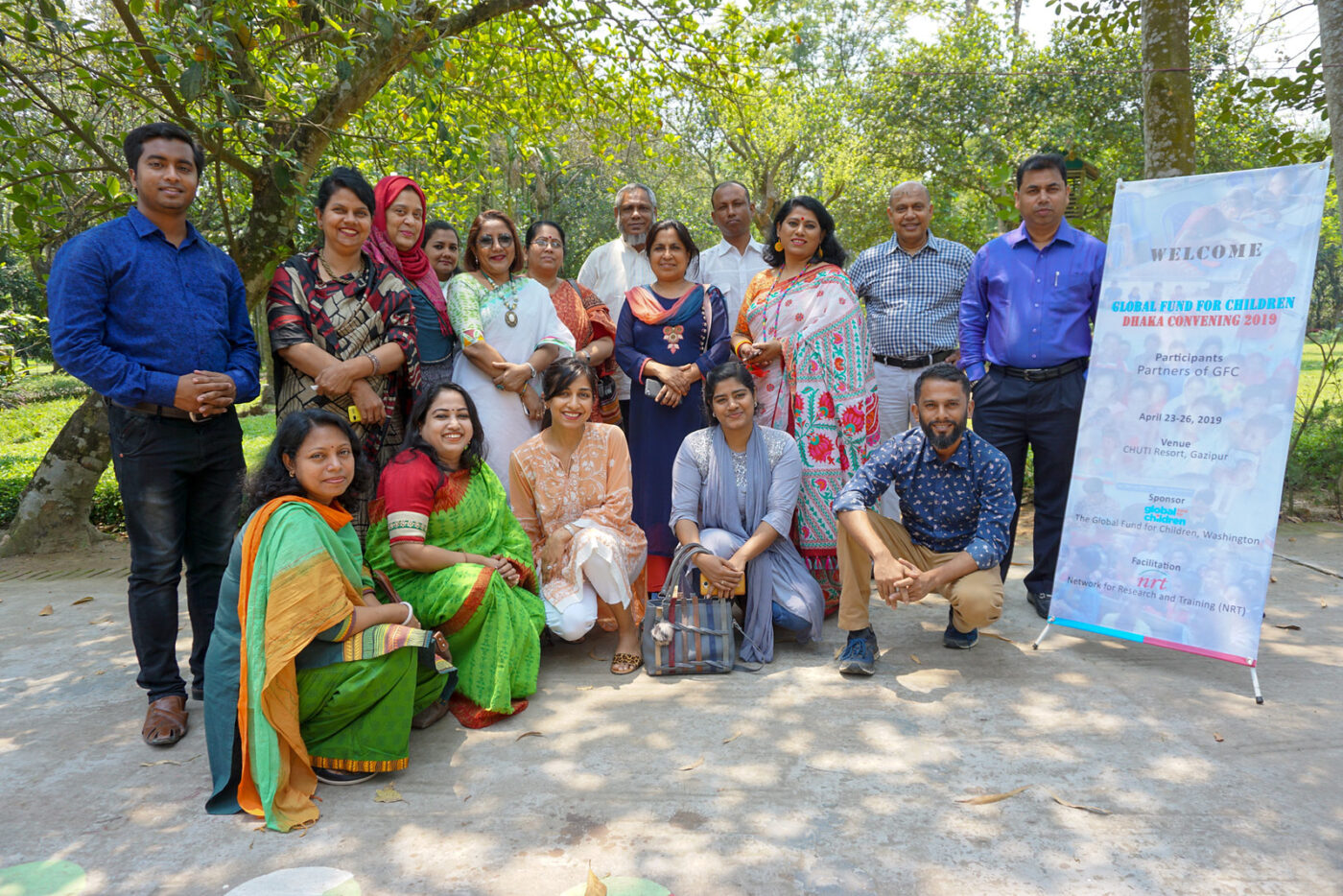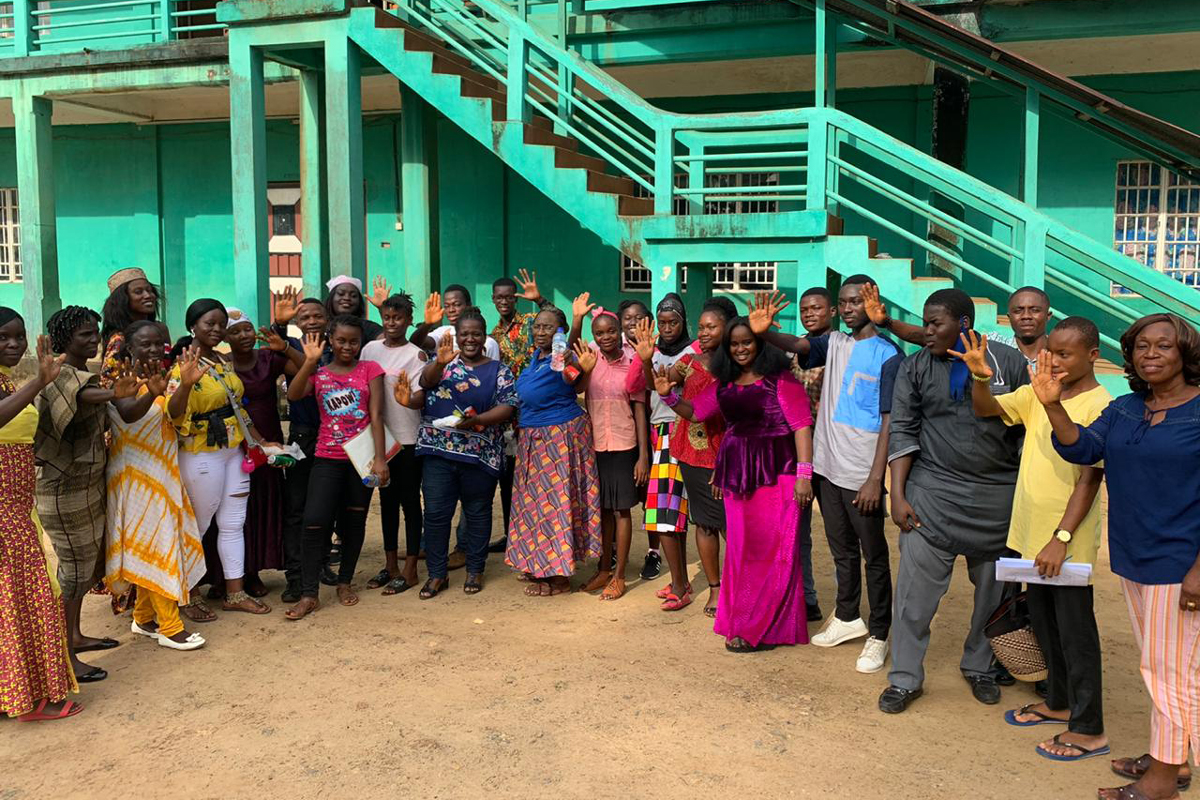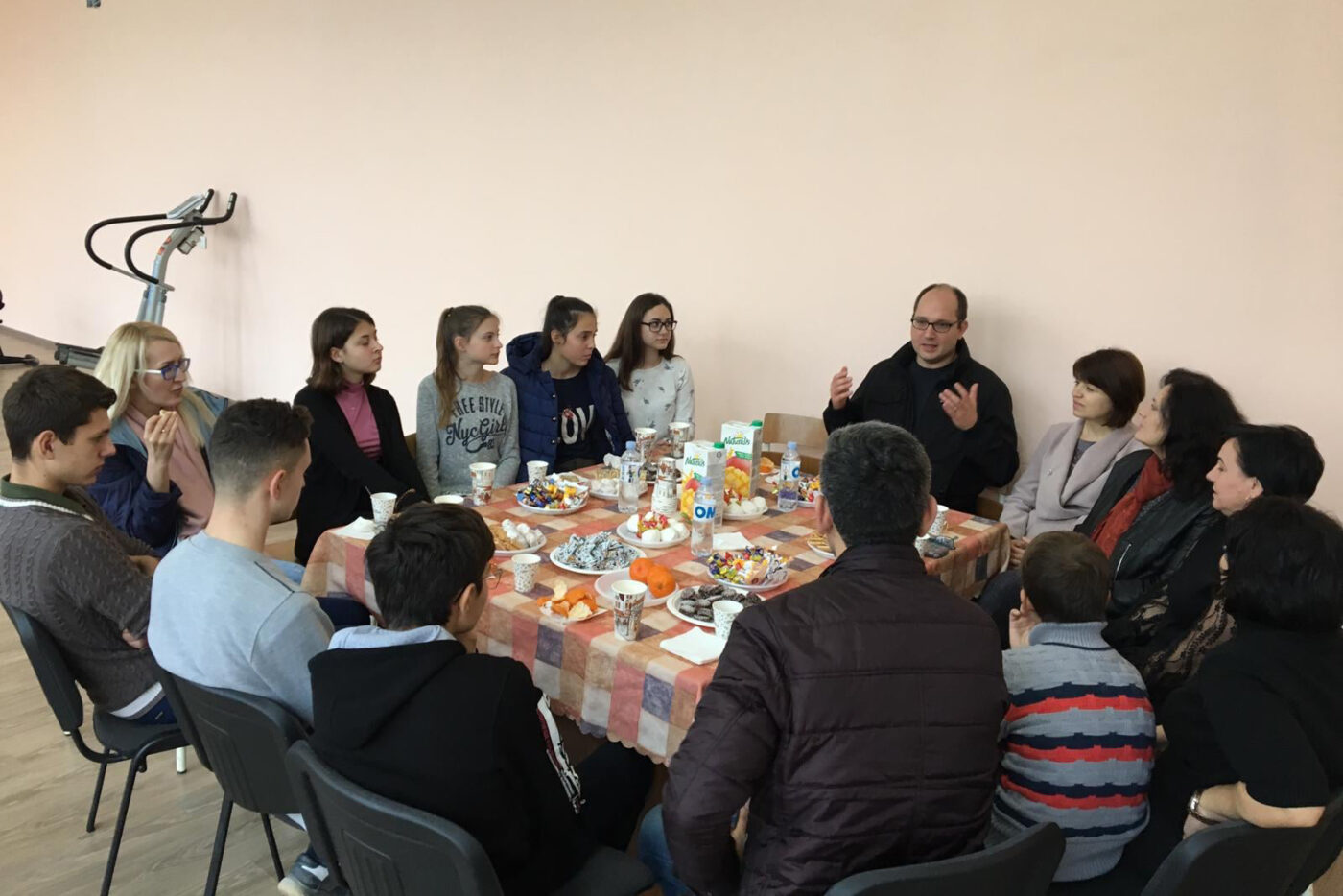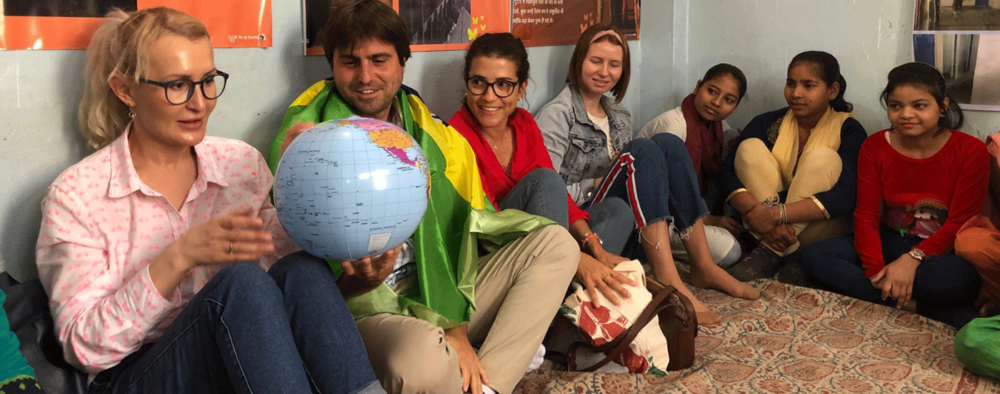
Gender justice
Climate resilience, Education, Gender justice, Safety and wellbeing, Solidarity in emergencies, Youth power
Editor’s note: This blog post is also available in Spanish.
Since its inception, GFC has championed an approach to funding that shifts power to community-led organizations. Thirty years of experience has led to GFC passionately advocating for change across the philanthropy sector so that more organizations can experience the multitude of benefits that flexible funding affords.
GFC’s dedication to this approach goes beyond financial support; at its core, this approach is about recognizing that community leaders are the ones who best understand their organizations, their communities, and their external environments.
GFC partners with grassroots organizations working with children and youth and fills a gap in philanthropy by providing small organizations with flexible, long-term support.
This contrasts with the typical approach in the philanthropy sector, in which funders provide restricted funding – money that is tied to a specific project and timeline – and impose arduous reporting requirements, limiting their grantee organizations’ ability to respond to needs as they arise. Alarmingly, project-restricted funding dominates philanthropy, accounting for close to 75% of giving. In contrast, for 83% of our partners over the past fiscal year, GFC was the first funder to offer flexible funding.
Flexible funding, sometimes known as general operating support or unrestricted funding, strengthens an organization’s overall budget and helps fund the full costs of projects as well as overall operations. When flexible funding is multi-year, organizations can also dream and plan for the future. In our 2022 annual partner survey, 76% of responding partners reported that the flexibility of GFC’s funding positively impacted other areas of their work.
Community members’ needs and dreams should guide the work of community-based organizations, and flexible funding is a powerful tool for organizations to channel resources to where they are most needed, rather than feeling pressured to prioritize donor wishes and requirements.

When the COVID-19 pandemic hit in 2020, flexible funding enabled GFC’s grassroots partners to pivot and respond to the needs people in their communities faced in that unique moment. As GFC’s Senior Regional Director for Asia, Kulsoom Khan, explains:
“Partners really appreciate how flexible funding allows them to be dynamic and creative and adapt based on learnings. This was especially true during the pandemic, where some funders decided that they weren’t going to fund certain things. GFC’s funding allowed partners to focus on the things that were most needed in their communities, even if it wasn’t part of their original budget.”
Meeting the needs of children and youth in complex environments requires innovation and dedication. Grassroots organizations need funding that lets them holistically meet children’s needs and advocate for their rights.
For one GFC partner, Fundación Dar Amor (Fundamor), flexible funding enables the organization to holistically support children living with HIV in Cali, Colombia. When Fundamor started an initiative to help transition children from orphanages to foster care, the organization realized that its project funding wouldn’t cover many of the needs the children had, such as changes in schools and daily activities.
According to Fundamor Director Guillermo Garrido Arrango, “Flexible funding made it possible to carry out the first documented deinstitutionalization process for children from orphanages to foster homes in Colombia. Without donors’ trust and flexibility, we would not have been able to make this dream a reality to transform the lives of children.”
Flexible funding also often means less time spent on grant proposals and reports; in turn, organizations can spend more time in communities. As one partner organization shared in our annual partner survey,
“Due to flexible funding, we were able to focus on achieving real results and effects for young people and not on submitting good reports every month.”
Flexible funding provided by GFC is not just about programmatic expenses; it goes the extra mile to cover critical costs that other funders might overlook. GFC’s partners have used this funding to pay for salaries, purchase essential equipment like laptops and generators, and even build necessary infrastructure like toilets.

Amé David, GFC’s Regional Co-Director for Africa, shares an enlightening story about a partner in Sierra Leone that, thanks to flexible funding, was able to address a pressing need:
“One partner in Sierra Leone mentioned how they couldn’t consistently operate their programs due to frequent power outages and how they wished they could buy a generator. The leader was so happy when I told her that they could with GFC’s flexible funding, although she almost didn’t believe me at first. She expressed that it was a groundbreaking moment, as this was the first time a donor had offered such flexibility to fill their operational gaps.”
Other organizations have used GFC’s flexible funding to invest in efforts to enhance their team’s wellbeing, especially given the stress of working with children living through adverse experiences. One partner organization used these funds to create its first maternity leave policy, protecting the health of mothers and newborns.
From natural disasters to conflicts to the COVID-19 pandemic, flexible funding has been a lifeline for organizations in their most urgent times of need.
Rostyslav Semka, a member of our Youth Leadership Council and the leader of GFC partner Education 360, shared the impact of flexible funding during the war in Ukraine: “A lot of projects that were planned three months ago or even longer are not relevant at the moment. It can be more effective if the funding is shifted to other activities to make more impact.”

With flexible funding, organizations can quickly access resources to adapt and be resilient in the long term. Joseph Bednarek, GFC’s Senior Director of Global Grantmaking, emphasizes:
“The speed that flexible funding provides during crisis situations, emergencies, and disasters is critical even though it is rare in the funding community.”
Flexible funding is more than a grantmaking approach – it is a catalyst for social change. By putting communities first, covering critical costs, and enabling grassroots organizations to adapt to urgent needs, it strengthens organizations to make a lasting impact on the lives of children and youth. GFC’s unwavering commitment to flexible funding serves as a model for philanthropy, demonstrating how having trust in communities can drive positive change in the world.
Read GFC’s news item about our participation in the #FlexibleFundingWorks campaign.
Header photo: Through the Step Up initiative, GFC and local partners from around the world worked together to foster long-term capacity, effectiveness, and sustainability during meetings like this one in New Delhi, India. © GFC.
